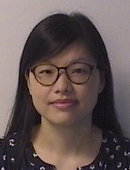Biography
Research Topics
Apoptosis/Cell Death, Atherosclerosis, Fibrosis, Immunology, Inflammation, Lysosomes/endosome, Macrophage, Membrane Proteins/Channels, Metabolism, Protein Kinases, Protein Trafficking & Sorting, Receptors, Retinoic Acid, Signal Transduction, Trafficking, Translational Research
Apoptosis/Cell Death, Atherosclerosis, Fibrosis, Immunology, Inflammation, Lysosomes/endosome, Macrophage, Membrane Proteins/Channels, Metabolism, Protein Kinases, Protein Trafficking & Sorting, Receptors, Retinoic Acid, Signal Transduction, Trafficking, Translational Research
Multi-Disciplinary Training Area
Immunology [IMM]
Immunology [IMM]
